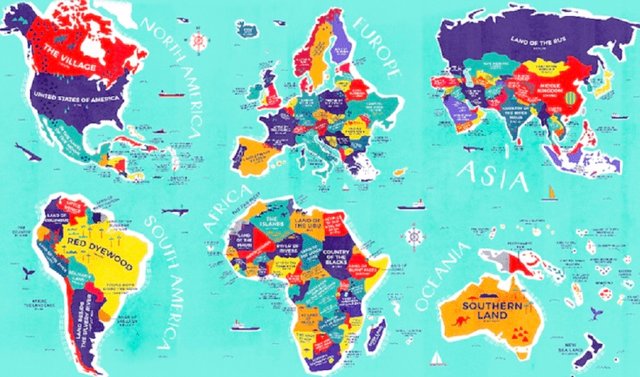
While many of your wheels are already spinning in rebuttal of the title, such objections negate the rights of your own country to maintain sovereignty on the global scene.
At the center of each nation is a core of beliefs and ideals, principals, and social expectations that define the people and the way that they live. Closely tied to these are ideologies of patriotism, nationalism and a general belief that their way of life is “right” or somehow “better” than that of other countries.
By their own scale, every country is the best. Anything less historically entices a self-induced change of regime, mass migration, and/or sociopolitical collapse. However, these same nationalistic ideals lead to disagreements and conflict between nations. The whole “you should do it our way” argument.
Do we have the right, as a sovereign nation to decide the extent of another nations sovereignty? And by doing so, do we invite other nations to hold us to the same standards?
Many of us that travel the world have experienced first hand the differences in social expectations from country to country. Things we may take for granted in our home country can be, and often are, a big deal to citizens of another nation. Who is correct in these issues? Why is this important to these people, while we have no laws controlling it in our nation?
The same can be said about some of our laws. I recently observed a conversation between a man from New York and a man from Japan discussing a particular law prohibiting taking a picture of once’s self in the presence of a tiger. The two opposing perspectives, and the obvious loophole of allowing another person to hold the camera were quite intriguing to witness. In my country the animal is held captive as a spectacle, and our laws are created out of safety and adolescent moral. This is often difficult to explain to someone from a country where this problem does not occur.
We may look at a law in another country and decide it is unfair, or constraining their freedom, or any number of objections without truly understanding what problems led to the creation of those laws. Often times understanding the differences in social interactions between different groups of people can help us view the perspectives of the other side.
If we are to be prudent in upholding the sovereignty of our own nations, we should be just as prudent in upholding the sovereignty of others. This is the true and only path to world peace.
Our economic decisions also can have a great impact on other sovereign nations. When we vote to impose unfair tariffs on one country but not another, or restrict or control the flow of goods and services into or out of another country, we are interfering with their sovereignty (not to mention harming our own economy).
Even third parties can be affected, as intermediaries of trade. For example, a majority of Canada’s trade to the U.S. comes from other countries who are otherwise heavily tariffed on direct imports. When we do choose to import directly from these countries, it is us who pays the extra cost as consumers, not the country we tariff. If an intermediary nation is not available, the affected country experiences a decline in exports as a result of available funds on the consumer end (I.e. it becomes too expensive).
Sometimes we vote to prohibit trade with a particular nation, and while this limits that nation’s explicit participation in our economy, when their goods or services are still in high demand it increases crime rates in our home nation. Coffee and cigars are one example of this.
Territorial nations are another form of restricted sovereignty. One that we were explicitly against in our own founding documents. But we continue imperialistic control over other small nations still to this day. On the one hand, we can not deny the importance of security and military strategics, of maintaining control over our territories, but we allow them partial sovereignty and maintenance of their nationalism. We should allow them admittance into the nation or give them the freedom every sovereign nation deserves.
Of course there are qualified reasons for going to war or imposing political and economic restrictions on other nations. When properly examined we find that these situations are few and far between when compared to the number of times we elect to interfere. We do this often misguided by uneducated headlines and catch phrases that encourage public agreement, without any sort of background knowledge on the subject. Many times we find the very politicians promoting ideas to have not even bothered to study that which they are rallying support for, often simply following the results of polls and how many people they can get to go for the idea than the logicality or reasonableness of what we are voting on. When other sovereign nations are involved this can be a dangerous and irresponsible behavior.
Sorry about the long post but for those of you who actually bother to read things, and are still with me:
I challenge you today to think about your list of “worst countries” in the world, and take the time to meet people from some of these places.